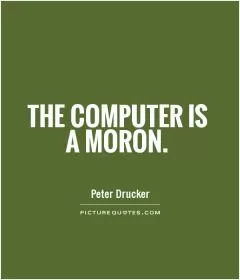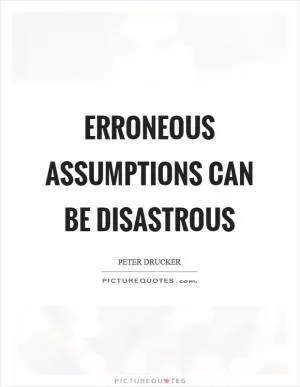Business, that's easily defined - it's other people's money

Business, that's easily defined - it's other people's money
Peter Drucker, often referred to as the father of modern management, was a renowned management consultant, educator, and author. He was known for his groundbreaking ideas on management theory and practice, and his insights continue to be highly influential in the business world today. One of Drucker's most famous quotes is, "Business, that's easily defined - it's other people's money."This quote encapsulates Drucker's belief that at its core, business is about managing resources, particularly the resources of others. In a business context, this means that a company's success is dependent on its ability to effectively utilize the capital, labor, and expertise of its stakeholders, including investors, employees, and customers. Drucker understood that businesses are not isolated entities, but rather interconnected systems that rely on the contributions of various individuals and groups.
When Drucker talks about "other people's money," he is highlighting the fact that businesses are funded by investors who provide the capital necessary for operations and growth. This capital is not the company's own, but rather belongs to external stakeholders who have entrusted their money to the business in the hopes of generating a return on their investment. As such, businesses have a responsibility to use this money wisely and ethically, in a way that maximizes value for both shareholders and society as a whole.
Drucker's emphasis on the importance of managing other people's money reflects his belief in the ethical and social responsibilities of businesses. He believed that businesses should not only focus on maximizing profits, but also on creating value for all stakeholders, including employees, customers, and the community. By recognizing the interconnectedness of business and society, Drucker advocated for a more holistic approach to management that takes into account the broader impact of business decisions.












 Friendship Quotes
Friendship Quotes Love Quotes
Love Quotes Life Quotes
Life Quotes Funny Quotes
Funny Quotes Motivational Quotes
Motivational Quotes Inspirational Quotes
Inspirational Quotes